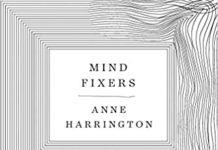The Year I Lost Everything, Psychiatry Offered Nothing
After a failed suicide attempt following my son's death, New York State incarcerated me in a mental institution for 21 days. The environment was degrading, stultifying, and downright depressing.
New Mom Held in Psych Unit Urges B.C. to Protect Rights of ‘Mentally Ill’
From CBC: Unlike most of Canada, British Columbia does not provide patients with legal representation — which the ombudsperson wants changed in the Mental Health Act.
Life Events Cause Psychosis: The Further Adventures of an Aspiring Psychonaut
I just wanted to do a brief followup on my last blog post about my latest psychotic break adventure. I am a recent Psychonaut exploring the inner workings of the mind, and finding out what was my reality versus Consensus reality. I am starting to come out of the experience. It is like waking from a dream. Questioning one's self is a standard part of this process of coming back to consensus reality — at least for me. It's good to reconsider some of the conclusions I've come to in the last month or so, when some of my inputs may have not been a part of consensus reality. But I'm getting stronger.
An “Even-Handed” History of Psychiatry as Damning as the “Polemics”?
Where Professor Harrington's book seems to differ from books that others might call polemics is that she does not attribute nefarious motives to the psychiatric establishment. I worry that she underplays the ways in which the current model causes harm, but I support her suggestion for a retraction of psychiatry's scope.
10 Things I Learned in 5 Years Consulting With People Coming Off Psych Drugs
It's been over 5 years since I started offering non-medical consultations to people in the process of coming off or hoping to come off psych drugs. I wanted to share here some things I have learned in this process. Despite how far we have come, we have a long way to go in the quest to liberate all who wish to be liberated from psychiatry.
Making Therapy Harder: When Corporate Forces Interfere with Therapy
From PsiAN (Psychotherapy Action Network): The psychotherapy profession must take a firm stand against interference with therapy wherever possible, whether from agency expectations, insurance companies, or certain legal & governmental policies.
Family Panel Discussion – Supporting a Child, Teen, or Young Person in Crisis
Supporting a Child, Teen, or Young Person in Crisis - Our guest panel, Ciara Fanlo, Morna Murray and Sami Timimi join host Amy Biancolli to share stories of crisis but also stories of healing and of hope.
Deconstructing the Word Trauma: What Does it Mean Today?
"Trauma" is a pandora's box of a narrative. Most writings on the subject emanate from the Global North. Is trauma the 'same' in the Global South?
Are Vitamins Killing us Softly?
Dr Paul Offit, chief of the Division of Infectious Diseases and Director of the Vaccine Education Center at Children’s Hospital in Philadelphia, recently published a book called: “Killing Us Softly: The sense and nonsense of alternative medicine.” It also goes under the title: “Do You Believe in Magic?: The Sense and Nonsense of Alternative Medicine” The book presents some evidence on alternative medicines like homeopathy, Chinese herbs, chiropractic adjustments and, of greatest interest to us, the evidence for and against nutrient supplements for the treatment of illness.
We Name It as Torture
To respond to controversy and resistance developing in response to the recommendation of Special Rapporteur on Torture Juan E. Méndez for an absolute ban on nonconsensual psychiatric interventions, I suggested to use June 26, the International Day in Solidarity with Victims of Torture, to raise awareness and support for the recommendations. What started out way more ambitious became a relatively informal call put out over email lists, Facebook and with the help of the Mad In America website, to MIA bloggers.
Schizophrenia and Genetics: A Closer Look at the Evidence
“The substantial hereditary component in schizophrenia,” a pair of researchers wrote in 1993, “is surely one of the two or three best-established facts in psychiatry.” But is it really? For mainstream psychiatry and psychiatric genetics, schizophrenia is “a severe mental disorder with a lifetime risk of about 1%, characterized by hallucinations, delusions and cognitive deficits, with heritability estimated at up to 80%,” or a “highly heritable neuropsychiatric disorder of complex genetic etiology.” Many commentators have challenged these claims, and some have challenged the concept of schizophrenia itself.
The Pond, Learning and Humility
What an amazing ride I’ve had in the past few days on the tsunami of commentary from my previous post. While it’s been fun (dare...
How “Safe Messaging” Gaslights Suicidal People
Suicide prevention constructs a reality in which the problems of suicide lie within suicidal people. Sanity is constructed around wanting to live, insanity around wanting to die. Within this paradigm, the suicidal person can never be trusted. They are fragile, vulnerable, demanding protection, surveillance, and management.
Human Beings Are More Than a Combination of Letters, or; Why We Needed a...
We are among an increasing number of people around the world who know the importance of holding on to a humanistic idea, and of keeping in mind that people need—first and foremost—other people. People who are willing to take part, to share with us the horror and confusion, to invite the telling of a narrative, and to keep the hope alive.
A Look at Madness Through the Lens of Culture
Twenty years ago, I was invited to watch a young monk named Thupten Ngodrup go into a trance and ‘channel’ the State Oracle of Tibet (The Nechung Oracle). It took place in a small monastery next to the Dalai Lama’s residence in the little Himalayan town of Dharamsala, India. As the monks began to chant and beat their drums, Thupten’s eyes rolled back, his face flushed and he began to speak in a high-pitched voice. A few monks gathered around him and began writing down everything he said. After a few minutes, he collapsed and had to be carried from the room. At the time, I didn’t know what to think of what I had seen. Was this a dramatization?
Childhood Gaslighting: When Difference Receives a Diagnosis
Aside from the home, school is typically where we learn our worth or lack of it. We learn what we are taught, and how we are taught is often what we are taught.
Decision-Making and Moral Injury
Oppression and abuse have effects on a person's sense of self and experience of agency, or lack thereof; on one's ability to know one's self in the world as actor, and not only acted-upon. Some (and maybe all) aspects of oppression and abuse specifically entail moral injury and violation of moral integrity. This is particularly interesting to explore because it links psychological trauma as a result of oppression and abuse with an aspect of decision-making difficulty that some of us experience as psychiatrically-labeled people. There is something to be gained by reclaiming ownership of the truths of our own lives, and ownership over making decisions about where to take the discussion: in philosophy, psychology, law, politics, art or anywhere else.
NC Lawmakers Seek Non-Police, Community Interventions to Mental Health Crises
From North Carolina Health News : State lawmakers have introduced a package of mental health bills that would provide alternative interventions, such as non-police crisis response units and more peer-support organizations.
Turmeric as Effective as Prozac, With no Side-Effects
A randomized, controlled study by the Department of Pharmacology of Government Medical College in Bhavnagar, Gujarat, India found that in a study of 60...
An Essay on Finnish Open Dialogue: A Five-Year Follow-Up
It has been five years since I traveled to Western Lapland in Finland to film my documentary “Open Dialogue” on their Open Dialogue Project—the program, as I stated in the film, presently getting the best long-term statistical results in the world for the treatment of first-episode psychosis. My film came out four years ago, and since then I have been screening it around the world, giving lectures about Open Dialogue and my experience in Finland, participating in regular conferences and Q&A sessions about it, receiving daily emails, Facebook messages, blog and Youtube comments about it (as it’s now been free on Youtube for a year), and keeping in regular contact with some of the folks who work there. But I haven’t shared many of my updated opinions in writing, so I wish to do so now.
Does the Psychiatric Diagnosis Process Qualify as a Degradation Ceremony?
Sociologist Harold Garfinkel, in his landmark article "Conditions For a Successful Degradation Ceremony" wrote that "Degradation ceremonies are those concerned with the alteration of total...
Appeals Court States Psychiatrists May Commit Medicaid Fraud by Prescribing Drugs Off-Label
The Seventh Circuit Court of Appeals yesterday rejected a lower court's dismissal of Watson v. King-Vassel, saying that a jury is in fact sufficiently able...
The STAR*D Scandal: Scientific Misconduct on a Grand Scale
The American Journal of Psychiatry Needs to Retract Study That Reported Fraudulent Results
How a Bench and a Team of Grandmothers Can Tackle Depression
From the BBC: "'A lot of people thought it was a ridiculous idea,' says. 'My colleagues told me, "This is nonsense."'
Lacking any other...
The New York Times Is Now Engulfed in the STAR*D Scandal
The New York Times published yet again the fraudulent result from the STAR*D trial. Will the mainstream media ever tell of this scandal?






















